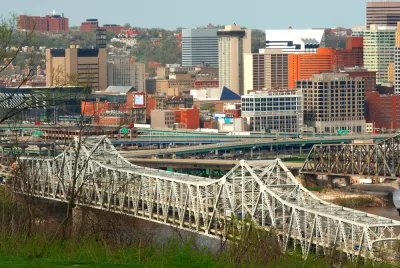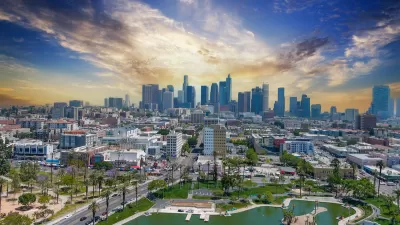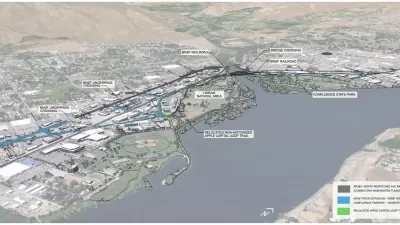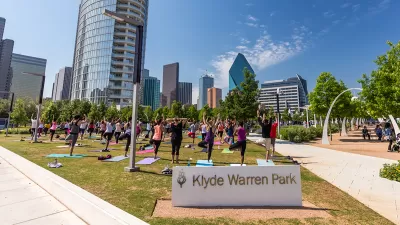The funding comes from a discretionary grant program aimed at supporting infrastructure projects too massive or complex for traditional funding mechanisms.

The U.S. Department of Transportation (USDOT) announced close to $1.2 billion awarded to nine applicants for the National Infrastructure Project Assistance (Mega) discretionary grant program. The program “funds projects that are too large or complex for traditional funding programs” such as bridge, port, highway, passenger rail, and other major projects.
According to USDOT, “Applications were evaluated based on several criteria, including safety, ability to return transportation infrastructure to a state of good repair, economic benefits like the creation of quality jobs, supply chain resiliency, environmental sustainability and climate resiliency, equity, and innovation.”
The grants include $78 million for Philadelphia’s Roosevelt Boulevard Multimodal Project, which will make improvements on one of the city’s most dangerous streets; $292 million for concrete casing at New York’s Hudson Yards that lays a foundation for the Gateway Project and preserves right-of-way for the Hudson River Tunnel; $60 million for a freeway widening project in Diamondhead, Mississippi; and $260 million for bridge replacement projects in Louisiana and North Carolina.
Planetizen previously covered reporting on the Brent Spence Bridge, which serves as an important freight corridor over the Ohio River. A proposal to improve the bridge and build an adjacent bridge to relieve traffic received $250 million in Mega funding and $1.6 billion in Infrastructure Investment and Jobs Act (IIJA) funding last month.

Study: Maui’s Plan to Convert Vacation Rentals to Long-Term Housing Could Cause Nearly $1 Billion Economic Loss
The plan would reduce visitor accommodation by 25,% resulting in 1,900 jobs lost.

North Texas Transit Leaders Tout Benefits of TOD for Growing Region
At a summit focused on transit-oriented development, policymakers discussed how North Texas’ expanded light rail system can serve as a tool for economic growth.

Why Should We Subsidize Public Transportation?
Many public transit agencies face financial stress due to rising costs, declining fare revenue, and declining subsidies. Transit advocates must provide a strong business case for increasing public transit funding.

How to Make US Trains Faster
Changes to boarding platforms and a switch to electric trains could improve U.S. passenger rail service without the added cost of high-speed rail.

Columbia’s Revitalized ‘Loop’ Is a Hub for Local Entrepreneurs
A focus on small businesses is helping a commercial corridor in Columbia, Missouri thrive.

Invasive Insect Threatens Minnesota’s Ash Forests
The Emerald Ash Borer is a rapidly spreading invasive pest threatening Minnesota’s ash trees, and homeowners are encouraged to plant diverse replacement species, avoid moving ash firewood, and monitor for signs of infestation.
Urban Design for Planners 1: Software Tools
This six-course series explores essential urban design concepts using open source software and equips planners with the tools they need to participate fully in the urban design process.
Planning for Universal Design
Learn the tools for implementing Universal Design in planning regulations.
City of Santa Clarita
Ascent Environmental
Institute for Housing and Urban Development Studies (IHS)
City of Grandview
Harvard GSD Executive Education
Toledo-Lucas County Plan Commissions
Salt Lake City
NYU Wagner Graduate School of Public Service





























